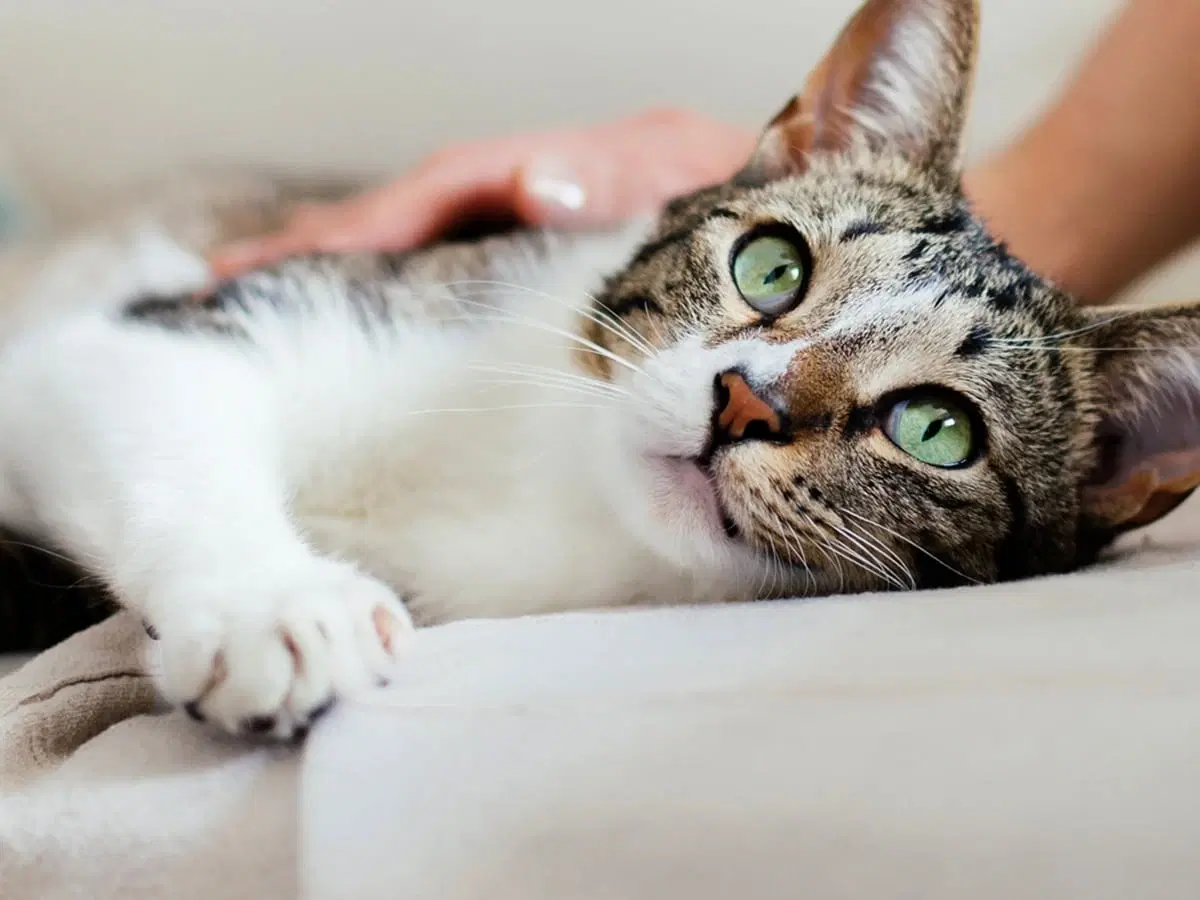There are several reasons why your cat may vomit, some of which are more dangerous than others. As a pet parent, you should be aware of the causes of your cat's vomiting and be able to identify when vomiting necessitates a trip to the veterinarian.
In this article, we'll help you understand some of the causes and symptoms of vomiting, as well as tips on how to prevent it.
When Should I Be Concerned About My Cat Vomiting?
Everyone has their tells, whether it’s a human or a pet. When it comes to vomiting, pet parents should be acutely aware of any changes in their pet's behavior. Some pets may look depressed or lethargic when they're feeling sick. Pet parents should also look out for changes in their pet's appetite, which could result in weight loss. If your cat vomits multiple times, or if there is blood in their vomit, contact your veterinarian.
Causes of Vomiting in Cats
Unfortunately, vomiting is a fairly ambiguous symptom for a wide range of conditions. Nearly every feline ailment can cause vomiting. Toxins, medications, eating an improper diet, as well as gastric (stomach), intestinal, and endocrine issues, neurologic (usually brain-related)issues, ear infections, and cancer can cause vomiting. If you think an improper diet may be the cause of your cat's vomiting, read this article for nutrition and diet tips for cats and dogs. There are hundreds of illnesses in each of these groups. The following are some of the most prevalent causes of vomiting:
Ingestion of lilies, antifreeze, and other toxins.
Reactions to chemotherapy, antibiotics, and anti-inflammatories.
Food intolerances or abrupt changes in diet
Ingestion of foreign bodies, ulcers, and stomach inflammation
Acute inflammation, inflammatory bowel illness (usually chronic), cancer, or constipation
Liver disease, renal disease, and pancreatitis
Endocrine disorders including; hyperthyroidism (an overactive thyroid gland), high calcium levels, and diabetic ketoacidosis can cause vomiting.
Vestibular illness (which can be connected with inner ear disorders), encephalitis (inflammation of the brain lining), and malignancies
Feline infectious peritonitis, feline panleukopenia, and heartworms are all examples of infectious diseases that can cause vomiting
Cancer can be a direct cause, such as intestinal cancer, or an indirect cause, such as cutaneous mast cell tumors.
Diagnosing the Cause of Vomiting
It can be difficult to determine the cause of a cat's vomiting. The majority of cases of vomiting are transitory and improve with only symptomatic treatment and time. A rudimentary workup is typically recommended to help check that a more serious condition is not present.
Obtaining an accurate history is often the first step in identifying the reason for vomiting. Here are a few questions your veterinarian may ask you:
Was the cat exposed to any plants or toxins?
When did the nausea begin?
What is your cat's typical diet?
Is the cat allowed to go outside, and if so, does the cat hunt?
Was there anything in the vomit?
How often is your cat vomiting?
Is the cat taking any medication?
Is your cat experiencing diarrhea?
When does the vomiting happen (while eating or other activities)?
Has your cat lost weight?
Is the cat urinating or drinking water more often than normal?
How to Help Prevent Your Cat From Throwing Up
Unfortunately, there is no way to prevent your cat from ever vomiting. However, there are a few things you can do to help make your cleanup and your cat's recovery more bearable.
Talk to your veterinarian about your cat's diet, and ask them to help you choose a food that is well suited to your cat's nutritional needs. It is imperative to diligently follow your vet's diet recommendations to help keep your pet happy and healthy. If you would like a few suggestions on foods to discuss with your vet, read our article the Best Dry Cat Food.
Try using a puzzle feeder! This will force your cat to eat more slowly and can decrease the likelihood that they will throw up.
Regular trips to the vet are recommended if your cat is vomiting hairballs more than once a month.
Though cleaning up accidents is a natural part of being a pet parent, following these recommendations can help limit how often you have to clean up after your cat.
How Do You Treat a Vomiting Cat?
Food Allergies
Food sensitivities and allergies can cause digestive problems in certain cats. Take note of the mannerisms your cat displays before and after eating. Are they experiencing diarrhea, or itching skin, in addition to vomiting?
Discuss your observations with your veterinarian, and follow his or her recommendations regarding how to adjust your cat's food and other treatment options. Do not attempt to treat your cat's allergy at home, since changing their diet might irritate their stomach if done incorrectly.
Always err on the side of caution, and take your cat to the doctor straight away if something doesn't seem right. Every cat is unique, and your veterinarian is usually the best person to identify any underlying issues.
Diet Changes
Shifting to an easily digestible diet, such as boiled chicken, can do wonders for your cat. If the new meal stops the vomiting, you can probably conclude it was caused in part by a dietary intolerance or allergy, or potentially by a low-grade inflammatory bowel illness.
When trying out a new diet with a cat that has a history of vomiting frequently, give them a few weeks to adjust to the new diet before deciding if it is working or not. To help ensure a comprehensive, balanced diet, the cat should be on a prescription diet or a food with a limited-ingredient prescription.
Conclusion
To summarize, recognizing and dealing with cat vomiting necessitates a mix of knowledge, proactive care, and financial planning. When unforeseen health difficulties emerge, pet insurance can play a critical role in helping ensure that your cat can receive the best available treatment. You can help give your pet a happy and healthy life by remaining informed and alert.

Mostly a tech person, always a pet person. I am dedicated to improving the lives of pets and their humans with technology. Off-duty, I enjoy writing about the misbehaving of computer programs and my two Aussiedoodles, Calvin and Hobbes.
"Vomiting in Cats," VCA Animal Hospital, https://vcahospitals.com/know-your-pet/vomiting-in-cats, accessed Dec. 30, 2024.
"Cat Vomiting," Best Friends Animal Society, https://resources.bestfriends.org/article/cat-vomiting-types-causes-and-treatments, accessed Dec. 30, 2024.












